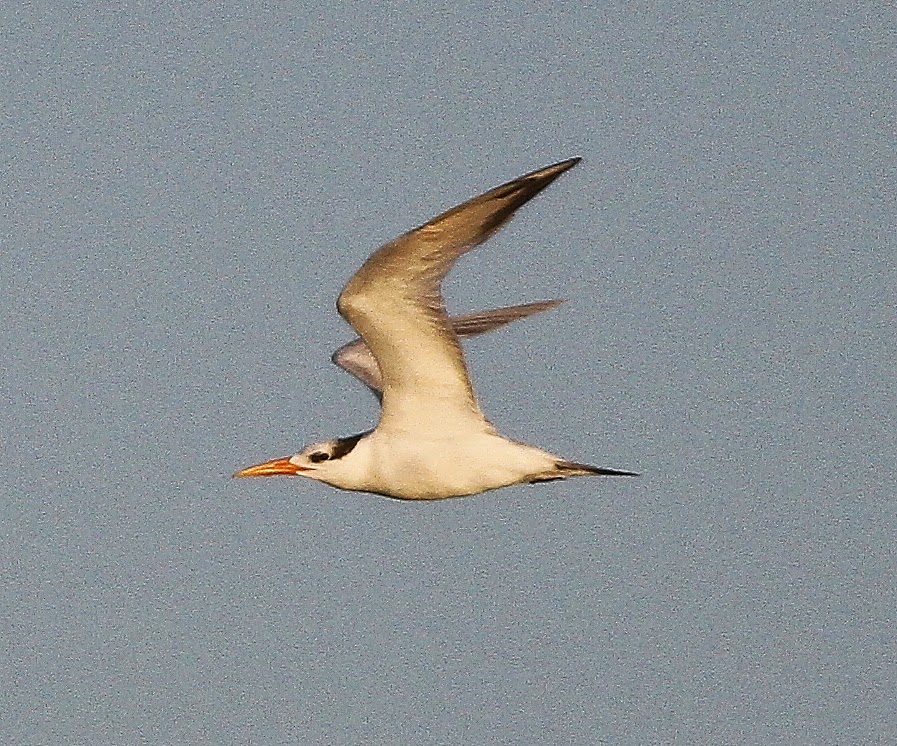Eventually, we arrived back into Dakhla
Bay from the Aoussard Road around mid afternoon. Rather than head back to the hotel we decided
to have another look for the Royal Terns. While we were watching the bay
from the sand cliff, I noticed something drop over the edge of the
cliff. Getting out of the car, I found a brown Wheatear on the
undercliff. A quick check of the tail pattern in the book confirmed it
was Black Wheatear. This is a scarce visitor to South of the Atlas &
so I was pleased to see my first Black Wheatear since the trip to
Morocco in 1990. Eventually Richard & John were ready to head back
to the hotel for some food & sleep, so I dropped them there &
after a couple of quick coffees, I returned to spend more time
photographing the Gulls & Terns. On my return, I located a couple of Audouin's Gulls with colour rings. Hopefully I will be able to track down the ringer & if I do, I will add a comment to the post with the details on these individuals.
Looking over Dakhla Bay: This large area of mud & sand held a large roost of Gulls, Terns as well as smaller numbers of Flamingos & Waders
The sandy cliff overlooking part of Dakhla Bay: Nearby was a Black Wheatear as well as good views of the Gulls and Terns
Cormorant: The maroccanus subspecies has more white in the belly of the immatures than the nominate carbo subspecies
Audouin's Gull: Colour ringed adult. The left leg is white over pale green & the right leg has a metal ring with 61 (perhaps 615) on it
Audouin's Gull: Close up of the ring
Audouin's Gull: Close up of the ring
Audouin's Gull: Colour ringed 2nd Winter.
The left leg has a wide white ring with BN7C on it & the right leg has a metal
ring
Audouin's Gull: Close up of the ring
Audouin's Gull: Close up of the ring
Audouin's Gull: 1st Winter
Caspian Tern
Royal Tern: This is the albididorsalis subspecies of African Royal Tern. I think that the ones that have turned up in the UK before are the American maximus subspecies
Royal Tern
Sandwich Tern
Sandwich Tern
Hoopoe Lark
Hoopoe Lark
Black Wheatear: The brown colouration and T shaped tail pattern with the tail broad band confirm this is a Black Wheatear, rather than an immature White-crowned Black Wheatear
Caspian Tern
Royal Tern: This is the albididorsalis subspecies of African Royal Tern. I think that the ones that have turned up in the UK before are the American maximus subspecies
Royal Tern
Sandwich Tern
Sandwich Tern
Hoopoe Lark
Hoopoe Lark
Black Wheatear: The brown colouration and T shaped tail pattern with the tail broad band confirm this is a Black Wheatear, rather than an immature White-crowned Black Wheatear


















